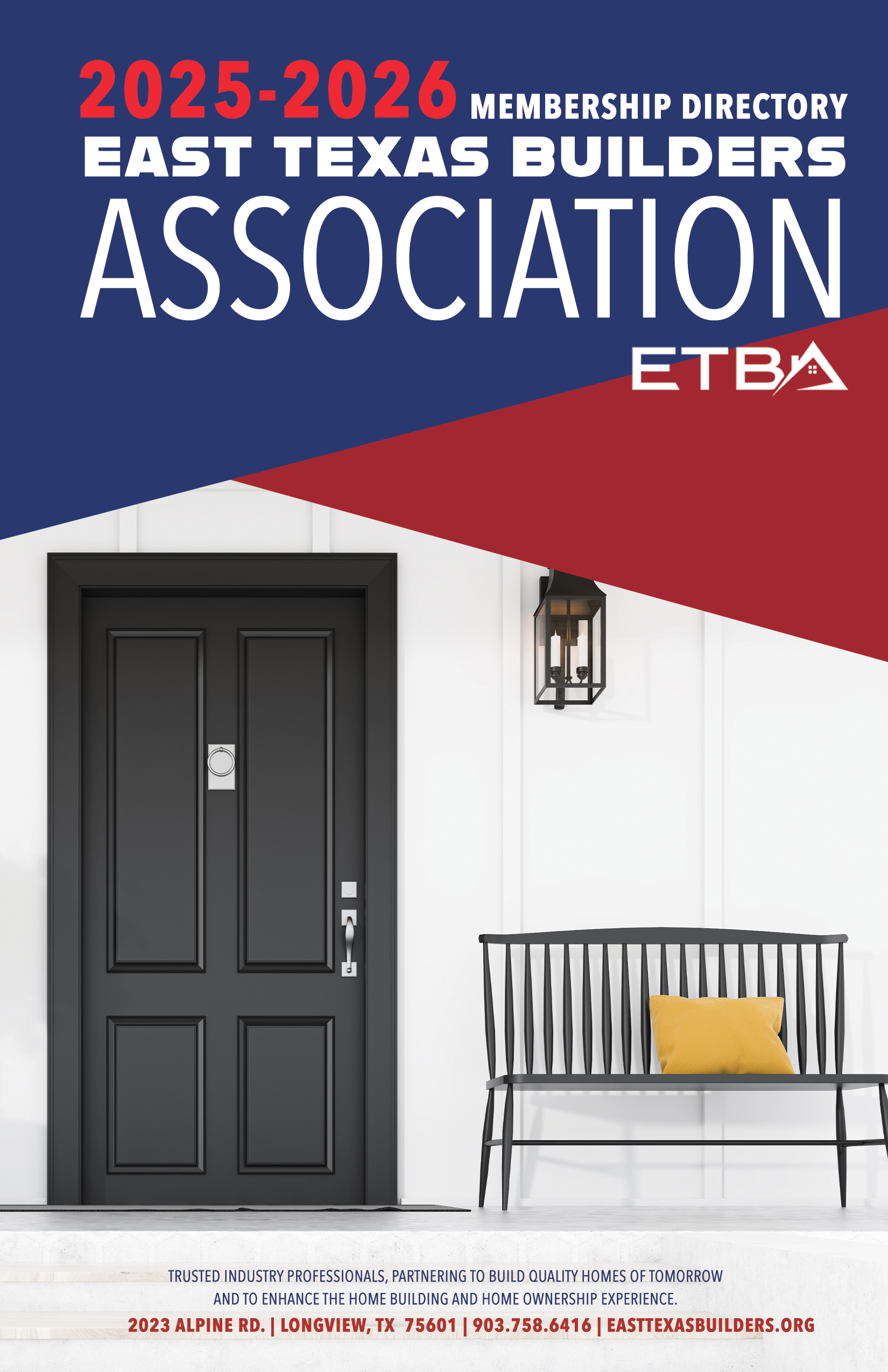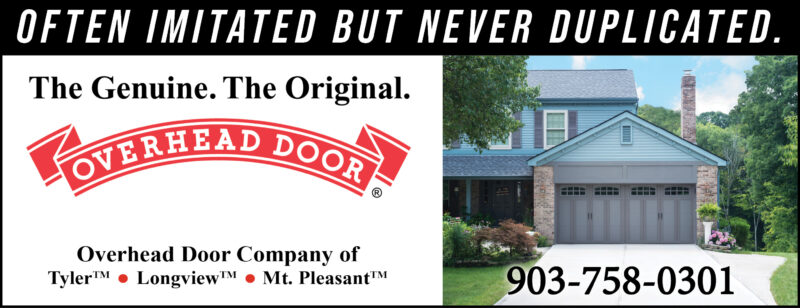The East Texas Builders Association (ETBA) is a voluntary trade organization representing all segments of the residential building industry. Through training, education and active participation in the legislative and regulatory process, our organization works in conjunction with the state association (TAB) to make membership an essential element of a successful building industry company.
We are not a regulatory agency. ETBA is governed by a Board of Directors elected by members, and the board directs the policies and operations of the association in accordance with its bylaws. The policies and bylaws of ETBA do not include any formal or informal process to settle disputes or complaints against industry members. However, those experiencing difficulties with home construction projects are welcome to share their experience with ETBA in order to help guide future training and educational efforts.
Contact ETBA at info@easttexasbuilders.org.
Natural Disaster Recovery
PUBLIC PSAs:
- Texas Association of Builders Radio PSA #1 (1 minute)
- Texas Association of Builders Radio PSA #2 (30 seconds)
- Texas Association of Builders Radio PSA #3 (15 seconds)
- Texas Association of Builders Radio PSA #4 (15 seconds)
- How to Hire a Qualified Contractor (Video 2:58)
Builder, Remodeler or Supply Vendor
Click here to search the East Texas Builders Association membership data base for a builder/remodeler/supplier in your area.
If you’re a tradesperson or suppliers that would like to be an East Texas Builders Association member, click here, to be added to our membership. For more information about being a member of ETBA, click here.
When Hiring A Contractor
Here are a few important guidelines to help you select a competent contractor:
GET MULTIPLE ESTIMATES
1. Rule of thumb, get a minimum of 3 estimates
ASK THE RIGHT QUESTIONS of Your Contractor
1. How long have you been in the building business?
2. What type of insurance do you carry?
3. What’s the best was to communicate with you?
Question to Ask Yourself:
1. Do I see myself working and communicating with this contractor?
2. What is my gut telling me?
CHECK WITH YOUR LOCAL BETTER BUSINESS BUREAU
Your local Better Business Bureau will know about
1. Ask about complains filed against the contractor
2. Check BBB rating with standing within the community
ASK FOR REFERENCES (and then follow-up!)
1. Get a minimum of 3 references from past customers
2. Call each reference
3. Contact or visit your town code inspector. Some Texas cities require that builders are registered and bonded. Check with your city’s building permits department in this regard. These officials will also know how many projects they’ve inspected. They will also know how many projects they’ve inspected for the contractor and, possibly, the subs they’ve used for projects.
HAVE A CONTRACT
The contract should include these 4 things:
1. A description of how change orders are processed
2. Warranty
3. Payment Schedule
DO NOT pay for the entire job up front or pay in cash. In fact, state law prohibits contractors in disaster areas from taking up front money unless they have held a physical business address in the county or adjacent county for at least one year. This law, found in Chapter 58 of the Texas Business and Commerce Code, provides other valuable protections for those rebuilding in disaster areas.
4. Completion date
THE BIG 3
The contract should include these 3 things:
1. Get References
2. Have a Contract
3. Do Not Pay upfront
Choose a Professional When Building Your New Home
Anyone interested in buying a new home wants to find a quality house built by a professional. While professionalism may mean different things to different people, generally there are guiding principles by which home building professionals conduct business. Look for these qualities in any home builder you choose to build your dream home.
♦ Building professionals believe that homes should be well designed, well-constructed and well located in attractive communities with accessible educational, recreational, religious and shopping facilities.
♦ They feel a strong responsibility to their customers and their community.
♦ Honesty is their guiding business policy, and they believe in dealing fairly with their customers, employees, subcontractors and suppliers.
♦ They try to build high standards of health, safety and sanitation into every home.
An important indicator of professionalism is whether or not the builder or contractor belongs to a home builder association or other professional organization. Becoming a dues paying member of a building industry association typically means that a builder is an established member of the community. Builder associations encourage their members to research and develop new materials, building techniques and equipment, and improve methods of home financing so that home buyers receive the greatest possible value for their money.
Home builder associations and their members care about their industry and building a quality product that will serve the homeowner and community for years to come. The quality of a new home will in large measure be determined by the skill of the building professional that constructs it. You should evaluate your builder as carefully as you would select the options and features of your new home. When you buy a new home, you are purchasing more than just a structure-you are buying a package of services, and the quality of those services will have an important effect on your enjoyment of the house.
You will communicate frequently with your builder during and after the construction process, so choose a builder with whom you will feel comfortable working and you feel best understands your needs.
One of the best ways to find out about the professionalism of a builder is to ask previous customers. Visit some of the builder’s previous communities and ask homeowners about their experiences. By doing your homework, you will be able to shop for a home with a sense of confidence and the knowledge that will help you to make the correct decision for your family.
For more information, please visit https://www.texasbuilders.org/about-us/consumer-information.html

 2026 Home & Design Show
2026 Home & Design Show 2026 Home & Design Show
2026 Home & Design Show ETBA Bowling Social
ETBA Bowling Social




